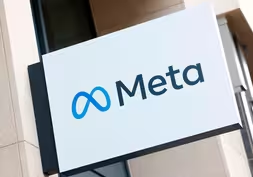
Tamara Keith and Amy Walter on voters and Trump's policies
Clip: 4/14/2025 | 7m 47sVideo has Closed Captions
Tamara Keith and Amy Walter on what voters think about Trump's economic policies
NPR’s Tamara Keith and Amy Walter of the Cook Political Report with Amy Walter join William Brangham to discuss the latest political news, including the political fallout from the Trump administration's tariff policies and intra-party fighting that seems to be breaking out with both Democrats and Republicans.
Problems playing video? | Closed Captioning Feedback
Problems playing video? | Closed Captioning Feedback
Major corporate funding for the PBS News Hour is provided by BDO, BNSF, Consumer Cellular, American Cruise Lines, and Raymond James. Funding for the PBS NewsHour Weekend is provided by...

Tamara Keith and Amy Walter on voters and Trump's policies
Clip: 4/14/2025 | 7m 47sVideo has Closed Captions
NPR’s Tamara Keith and Amy Walter of the Cook Political Report with Amy Walter join William Brangham to discuss the latest political news, including the political fallout from the Trump administration's tariff policies and intra-party fighting that seems to be breaking out with both Democrats and Republicans.
Problems playing video? | Closed Captioning Feedback
How to Watch PBS News Hour
PBS News Hour is available to stream on pbs.org and the free PBS App, available on iPhone, Apple TV, Android TV, Android smartphones, Amazon Fire TV, Amazon Fire Tablet, Roku, Samsung Smart TV, and Vizio.
Providing Support for PBS.org
Learn Moreabout PBS online sponsorshipWILLIAM BRANGHAM: The political fallout from the# Trump administration's tariff policies continues,## and intraparty fighting seems to be breaking# out with both Democrats and Republicans.
For analysis, we are joined by Amy Walter of The## Cook Political Report With Amy# Walter and Tamara Keith of NPR.
Welcome to you both.
AMY WALTER, The Cook Political Report: Thank .. Tam, sorry to not have you here in the room with us,## but you look great, huge at# the end of the table there.
WILLIAM BRANGHAM: First question to you.# I don't know if you heard.
We had David## Wessel on the program earlier talking# about the economic crater that this## has blown into the U.S. economy and how the# future does not really seem all that clear.
What have the political repercussions been# for the president and his administration?
TAMARA KEITH: I think that there are# repercussions, even though the policy## is a little bit unclear, or it seems# like it changes every 48 hours or so.
And various Trump administration officials are# delivering different messages depending on what## show they're on.
And then President Trump will# come out on social media and say something else,## for instance, his social media post saying# that there were no exceptions for electronics,## they're still being tariffed, and# also there might be more to come.
What the consequences end up being is that# consumer sentiment is in a very bad place.## And consumer sentiment also then goes forward# into sentiment about the president's performance## on the economy.
It is his weakest point.
It# is -- of all of the things that are polled## in terms of the president's performance, his# performance on the economy is at the bottom,## which is remarkable because he came into office as# the businessman who was going to shake things up.
He came into office -- and generally Republicans# are viewed more favorably on the economy.
So to## have that as his weak point does indicate# that there is something happening here,## that consumers are worried about# a recession, and that polling -- a## CBS poll over the weekend indicated a large# share of voters, including many Republicans,## believe that prices are going to get higher as a# result of this policy, at least in the short term.
WILLIAM BRANGHAM: Right.
I mean, and that, Amy, is certainly disastrous for#an administration.
I mean, does ... about-face, the tariffs are on, well, now they're# off, indicate that he is feeling that pressure.
AMY WALTER: I don't know.
I mean, I do think that he firmly believes and has#firmly believed for the last 40 years t... is the right policy and that, as he does in many# things, sometimes, the policy is not as organized## as many people would like to see, but that it --# but it will work out at the end of the day.
And I## think that's why you have so many Republicans# still sticking with him, including voters.
That CBS poll finds most Republicans willing# to give him some time for this to work out,## even as they're saying, yes, in the short term,# we expect prices to rise.
There's also a little## bit of a silver lining in some of this# polling that we're seeing.
While his... WILLIAM BRANGHAM: Silver lining for the president.
AMY WALTER: For the president, yes, for him.
Even as consumers -- as Tam points out, consumers# are nervous and his handling of the economy has## dropped off in recent in recent# weeks, what we're also seeing is that## 51 percent of voters in the CBS polls# say that they like the idea of what he's## trying to get at.
It's that 65 percent of# them don't like the way he's going at it.
So that...
The idea that there's a need for these# tariffs and that, amon.. obviously, Democrats aren't giving the president# any credit.
Republicans are all with him.
Among independent voters, more than 60 percent of# them in the CBS poll said they're willing to wait## a few weeks, months, even up to a year for these# to work themselves out.
And so while the chaos of## it is exhausting, is taking a toll for consumers# and for the president's overall approval rating,## he may actually have some more time for this# to get to a place that people feel like, oh,## OK, either that wasn't so bad or# maybe we're in a better place.
WILLIAM BRANGHAM: Tamara, I want to pivot to the# Democrats for a second and sort of a bind that## they seem to be in.
I mean, on the one hand, you# have Democrats that -- especially state governors,## who feel like they have to talk to the president# to try to dodge the incoming fire of his tariffs.
But you also have a base that very much# wants them to fight like hell against## him.
And we saw that in those protests that# erupted around the country recently.
There## was this remarkable example that happened# here in Washington where Michigan Governor## Gretchen Whitmer came to Washington, D.C.,# to talk to President Trump about this.
But apparently she was dragged into a photo-op# that she didn't want to be a part of.
And The## New York Times had this incredible photograph of# her basically covering her face as if to indicate,## I'm not cozying up to the president, dear voters,# who you want me to be hitting with a big club.
Describe a little bit the bind that# the Democrats find themselves in.
TAMARA KEITH: Yes, and I think governors# in particular find themselves in a bind.## You have Governor Whitmer hiding# behind that folder and then just## getting taken to task on social media.# Not that social media is real life,## but people saying, and that's the# day she lost the race for president.
I don't know that that's -- I think that's# overstating the case.
But the challenge for## governors is that they do need the federal# government.
They need federal assistance## when there are disasters.
They need those# Medicaid payments.
They -- essentially, they## need to somehow work with the federal government# because that's the way our government functions at## the same time that at any given moment President# Trump could turn on them, could withhold funding,## could -- as he's been doing with universities# and going after the state of Maine, for instance.
And so governors are in an incredibly challenging# position just trying to govern and lead their## states at this time where the president of the# United States could turn on them at any moment,## but where their voters, as you say, do really# want change.
They want a fighter.
They want## someone to aggressively hit back at the president,# though, yes, they're just a little bit stuck.
WILLIAM BRANGHAM: And, Amy, there's also this# frustration we have been seeing vented most## recently by a lot of progressive Democrats# challenging sitting Democrats in House races,## also Bernie Sanders and Alexandria# Ocasio-Cortez getting tens of thousands## of people out on a very economic# populist fight the president message.
AMY WALTER: Right.
I think what we're seeing more than anything#is one -- much more of style than ideology.## Somebody, I heard the other day saying what# Democrats are fighting about is not to be## more progressive, but to be more aggressive,# especially when it comes to Donald Trump.
Where that gets them, though, is the -- really# the next question because fundamentally,## and this is where I think Whitmer was going,# which is you not only have to work with the## president because I'm a governor of a state# and for all the reasons Tam pointed out,## you need federal assistance, but also what# do the Democrats stand for economically?
And that's going to be the# big question going forward.
WILLIAM BRANGHAM: Amy Walter, Tamara# Keith, great to have you both.
Thank you.
AMY WALTER: You're welcome.
Blues musician Nat Myers faces battle with a rare cancer
Video has Closed Captions
Clip: 4/14/2025 | 5m 22s | Acclaimed blues musician Nat Myers faces battle with a rare cancer (5m 22s)
Farmers turn to seaweed to reduce methane emissions
Video has Closed Captions
Clip: 4/14/2025 | 7m 45s | Farmers turn to seaweed in attempt to reduce methane emissions from livestock (7m 45s)
How Meta's antitrust trial could have major implications
Video has Closed Captions
Clip: 4/14/2025 | 6m 2s | How Meta's blockbuster antitrust trial could have major implications for big tech (6m 2s)
News Wrap: Penn. arson suspect charged with terrorism
Video has Closed Captions
Clip: 4/14/2025 | 5m 42s | News Wrap: Man accused of targeting Shapiro charged with attempted homicide and terrorism (5m 42s)
Russian cluster bomb attack on Ukraine kills dozens
Video has Closed Captions
Clip: 4/14/2025 | 3m 57s | Russian cluster bomb attack on Ukraine kills dozens, including children (3m 57s)
Tariff confusion injects more uncertainty into economy
Video has Closed Captions
Clip: 4/14/2025 | 8m 2s | Confusion over electronics tariffs injects more uncertainty into economy (8m 2s)
Trump, El Salvador reject responsibility for deported man
Video has Closed Captions
Clip: 4/14/2025 | 6m 51s | Trump, El Salvador's president indicate no intention of returning mistakenly deported man (6m 51s)
Providing Support for PBS.org
Learn Moreabout PBS online sponsorship
- News and Public Affairs

FRONTLINE is investigative journalism that questions, explains and changes our world.

- News and Public Affairs

Amanpour and Company features conversations with leaders and decision makers.












Support for PBS provided by:
Major corporate funding for the PBS News Hour is provided by BDO, BNSF, Consumer Cellular, American Cruise Lines, and Raymond James. Funding for the PBS NewsHour Weekend is provided by...






